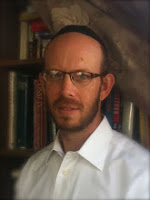In a previous Post I mentioned the view of Rav Elchonon Wasserman
that the prohibitions regarding bein adam l'chavero only apply where the
act is destructive and meant to harm. He learns this from the Rambam
(Hilchos Chovel 5:1) which states that hitting another is only
prohibited if done derech nitzoiyon (strife or vanquishing). He says this
rule applies not only to hitting but lashon harah and hatred.
A significant problem with making this sweeping generalization comes in the area of
theft. Can a person steal something for a joke or with intent to pay - without any desire to harm the victim?
More relevant to the issue of education - can a teacher or parent take
away a student or child's possession - for the sake of chinuch or to prevent sin? Can you take away a neighbor's computer to prevent him/her
from using the internet? Can you take away someone smartphone solely because you think it is for the person's benefit not to have it - even if you don't pay for it?
Rabbi Yehuda Hertzl Henkin
(Techumin Volume 8) has a long article on this and concludes that
despite being a common practice - there is no justification for taking things from another person against their will.
Bava Metzia (61b):Why did the Torah (Vayikra 19:11) need to explicitly prohibit stealing [since we learn the prohibition of causing financial loss from ribis and fraud while the prohibition of stealing in the Ten Commandments refers to kidnapping a person – Rashi]? The answer is as it was taught: One cannot steal just to aggravate [Rashi] another nor can one steal even if he intended to repay double for it [because he wants to give the victim something but he knows he won’t accept and therefore he uses stealing as a pretext to give him money – Rashi].
Rabbeinu Yonah (Shaarei Teshuva 3:85): Do not steal or suppress or lie (Vayikra 19:11). Our Sages (Bava Metzia 61b) state that “not stealing” means if it it is only to upset the person. In other words a person should not say I will steal his possession in order to upset him and I will take while he is watchin and I will warn him that he needs to be more careful in watching his possession and then I will return it to him. Similarly it is prohibited to steal possessions from another’s house and use them and then return them. Nor should you secretly take your own possessions from a thief after they were stolen so that you don’t look like a thief.An apparently refutation of this is in the following gemora - but the Meiri says it is not a problem
Bava Basra(16a): Rava asked the meaning of “The blessing of him that was ready to perish came upon me...(Job 29:13)....This verse alludes to the fact that Job used to steal the fields of orphans [and the orphans were convinced that they had lost the land – Rashi] and he would improve the fields and then give them back.
Meiri (Bava Basra 16a): There are sins which are done with good intentions and nevertheless they are not permitted. But this seems to be contradicted by this gemora where Job is praised because he would steal land from the poor and orphans and improve it and then return it. That is because Job was well known as such a tzadik – that even though he didn’t explain this reason – every knew that was his intent in taking the land. The gemora describes this as theft only as a general term of taking property of others – but according to my understanding it did not mean to say it was a sinful taking of the land. ... We can see from these cases that even when a person intends to do good and that should permit the act – nevertheless we are told that good intent is not enough to permit stealing in any form even if it is public knowledge what you are doing. That is because this gemora explicitly said not to steal even if you intend to pay back double. This requires further clarification. Nevertheless even the great Rabbis indicated that it is prohibited. Nevertheless the major difficulty has been removed regarding Job.
[I
will be adding sources to this post regarding this serious exception to Rav
Wasserman's assertion and possibly other exceptions.]


















